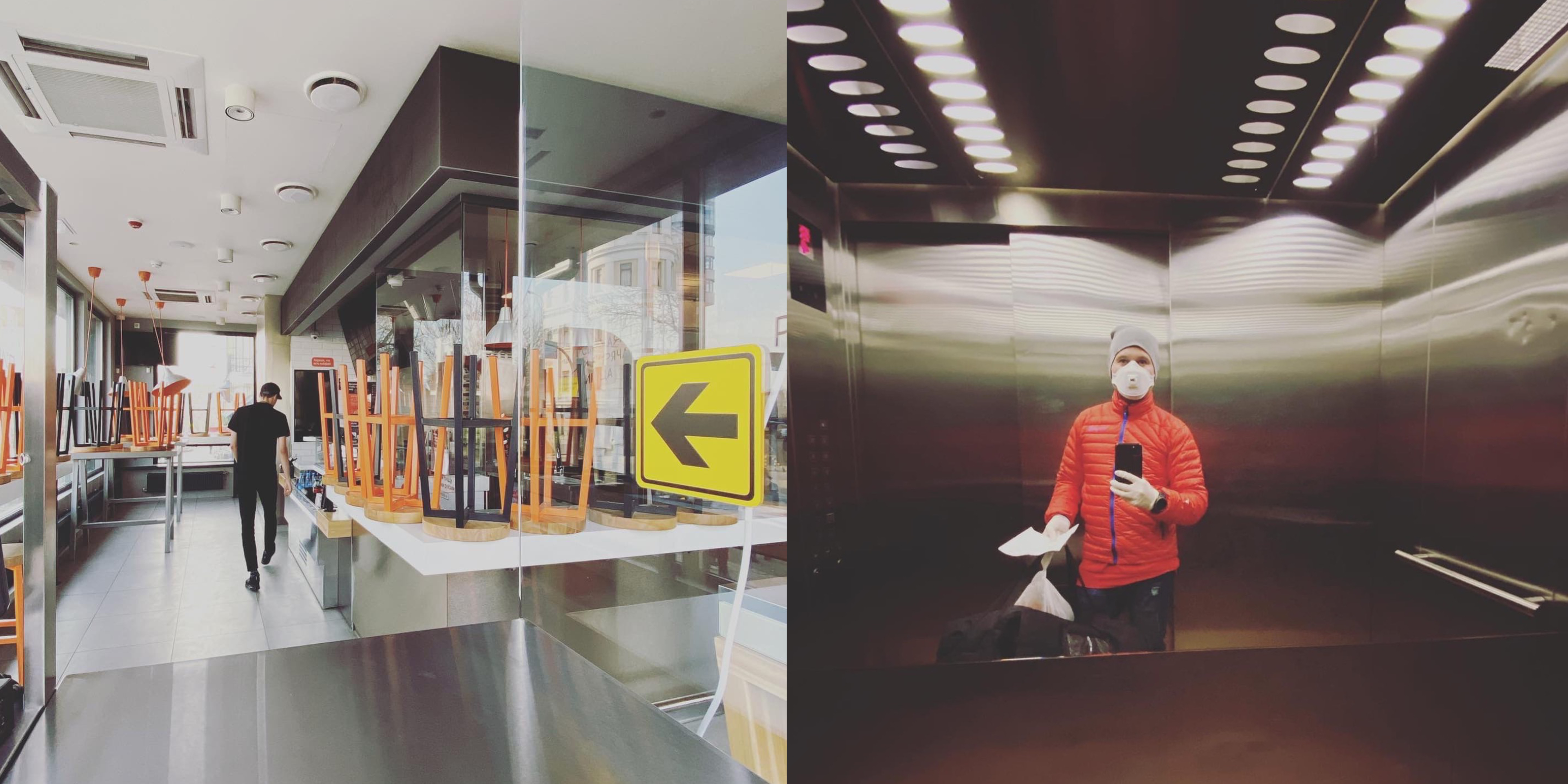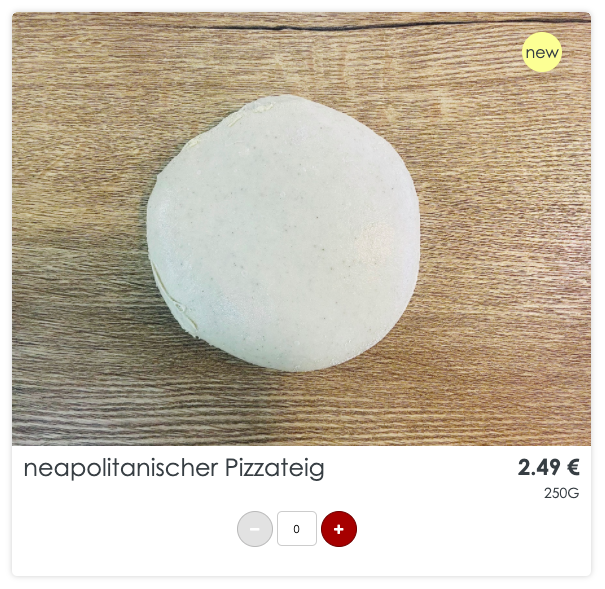
Covid-19 survival guide for restaurants: 18 tactics to see it through
08 April 2020
Some people say this corona crisis is awesome. At last, you can officially work from home. You can improve your cooking, spend time with your kids, finish that online course in French literature… Don’t trust people saying that. They are lying.
This corona crisis sucks. People will die, lose their jobs, go bankrupt… And even if they don’t, they can’t go about their lives as usual.
So it sucks for anyone, but for everyone in the food service business, it sucks big time.
What can we do?
I reached out to my network of restaurateurs and QSR professionals asking what they are doing to see this crisis through. I also studied our own best practices across the Dodo Pizza chain of 600+ units in 13 countries.
The result is this “Covid19 survival guide” I’m sharing.
If it helps save just one burger joint, pizza parlor or coffee shop somewhere on this planet, I’ll be happy. The least I can do.
If you have any suggestions worth adding to this list, reach out to me on LinkedIn.
1. Seek government support
If there is any sort of financial support from the government you can apply for, do it. Nothing to be ashamed of.
2. Follow safety standards to the hilt
If you choose to continue working, your number one priority should be safety—for customers and your team members. Make sure you follow all the official guidelines, and then, aim to do even more. Masks, glasses, gloves, temperature checks, sanitizers, social distancing… Do everything it takes to reduce the risks.

3. Renegotiate rent
Ask your landlord to lower the rent. Open your books and let them see how bad the situation is. Explain that you going belly-up won’t help them in any way. But remember that they have their own financial obligations. So it’s in your mutual interest to find common ground and strike a balance in which both parties might be losing a lot but staying afloat.
4. Reschedule your payments to suppliers and banks
Request a longer credit period on invoices from your main suppliers. The same goes for bank payments for any equipment you might have bought on loan before the crisis.
5. Do away with all non-essential costs
Crises like this make people rethink what’s important to them and what’s not. You should do the same and get rid of everything non-essential. Do you really need to add a pack of napkins to every order when most of the meals are now consumed at home? Every penny now counts.
6. Rethink your opening hours
There is a chance that customer behavior has changed drastically in your neighborhood. There might be new spikes of demand and new dead hours… Our pizza shop in Oxford has cut down its working hours from 10 to 5 hours a day. Sales have dropped only 6% year-over-year.
7. Ramp up delivery with new products
We never thought Dodo Pizza would be selling hot coffee for delivery in Russia. Now we are. Hot drinks already make up 36% of all sales in the drinks category for delivery… And we’re not alone in such efforts. Seek out new products that will fit your brand, increase the average ticket and motivate customers to order more often.

8. Add supplementary grocery products
Buying groceries online used to be a premium service for the rich. Now everyone is resorting to it. And supermarkets are struggling to keep up with the demand. So if you deliver meals, start delivering some food and even non-food items as well. Customers will be ordering a meal to treat themselves on Friday, for example, adding a few food items to tide themselves over the weekend. One of our units managed to bring in $1,700 in weekly sales with grocery products at a good margin.
9. Turn your meals into meal kits
You can also try turning some of your meals into meal kits for customers to cook at home by themselves. The logic is the same as with groceries: in one delivery people can get a hot product to eat right away and another serving of something for the next day. Besides, some customers might think that a product cooked at home is safer (indeed, in case of pizza, for example, no virus can survive the heat of an oven).

10. Extend your delivery area
Because of the lockdowns, in many cities roads are now pretty empty. So it’s quite possible to extend your delivery areas. We temporarily closed some of our units in Moscow and redistributed their delivery zones to other shops nearby.
11. Make delivery more affordable
Delivery can be your lifeline, but you need the numbers to make it work. So your goal is to make it as affordable as possible. It’s not about making profit, it’s about having cash flow. If you deliver through aggregators, offer customers lower prices with direct ordering. If you set a minimum order value for free delivery, consider lowering it.
12. Increase online budgets
This is a no-brainer. People are cooped up in their apartments. They read news and chat with friends on social. They are at home and online, and that’s where you also want to be. The natural response to any crisis is to scale back marketing spending. But our units in Great Britain saw a boost in sales after they doubled down on the internet.
13. Adapt your communications
If Bin Laden were killed today, probably nobody would care. Covid-19 is the only topic that attracts attention. So it’s important to update all your messages on social and even deals on your website to be in sync with what’s on everybody’s mind. Your communication should somehow reflect the current state of affairs.
View this post on Instagram
14. Introduce subscriptions
Subscriptions in food service used to be a niche concept. Now the situation might be changing. Customers have much more predictability in their lives (most of them are pretty sure that tomorrow they’re staying home, and the day after, and over the weekend as well). So introducing weekly subscriptions might be an idea worth exploring.
15. Consider discounts for scheduled delivery
If you are leery of the subscription model, consider a lighter version of it: offer sensible discounts for orders placed a day or two ahead. This will make your brand more affordable for your customers and allow you to plan workload and improve profitability.
16. Focus on efficiency
It goes without saying that managing labor cost is of utmost importance during any crisis. So as soon as you get some sales data reflecting the new reality, plan accordingly. You will have excess staff, but instead of letting your team members go, try to find them new roles. You’ll probably experience an increased workload in delivery and may be receiving more calls from customers asking all kinds of questions about new deals and safety.
17. Step up communications with your team
We at Dodo have been sending out a weekly internal newsletter for many years. It’s one of our primary forms of communication with our partners and team members. Recently, we switched to daily newsletters. Most of them are devoted to the latest developments in our anti-crisis strategy. Informing your team about practical matters and lifting their spirits is crucial.
18. Support the community
If you can, support the community, medical workers, older people and those who are struggling more than others. Not because it will give you an opportunity to post a schmaltzy update on social media and promote your brand.
It’s just the right thing to do.
For many of us, shutting everything down might be much easier than keeping the lights on. But if you choose to keep hustling, consider this: brands that stay in business for customers during such a time providing quality food and service will be remembered and loved by people long after this crisis ends.
And sooner or later, it will.
